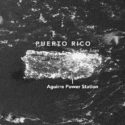A blackout lasting more than 24 hours affected most of the residents of Puerto Rico, and thousands had no electricity for days. In the tropical heat, they were without air conditioning or refrigeration, not to mention electric light, internet access, running water, and the other modern conveniences that U.S. citizens usually take for granted.
Businesses closed. Schools shut down. Hospitals canceled all non-emergency services. Streetlights went out and busy highways were suddenly plunged into darkness. 340,000 people lost water service. At least one person spent a night trapped in an elevator and at least one died from carbon monoxide poisoning from a faulty generator. The governor declared a state of emergency.
A fire in a power plant was the start of it all, according to PREPA, the government utility that supplies electricity to Puerto Rico. A switch overheated, a truck full of mineral oil exploded, and three acres burned before the fire could be contained. The fire knocked out a couple of electrical lines, and that tripped circuit breakers across the Island.
There were cheers as the lights came back on after days of hard work by the employees of the utilities, but that followed 15 fires across the Island and plenty of frustration from the people and the leaders of the territory.
Would this happen in a state? In 2003, the Northeast of the United States and Canada suffered a blackout affecting 55,000,000 people. Some were without electricity for 13 hours in the largest blackout in North American history. It was eventually traced to human error. Florida had a blackout from a power station failure in 2008, affecting two to three million people, most for less than an hour. Schools did not close. Otherwise, large-scale power outages in the United States typically come in the wake of hurricanes, blizzards, and earthquakes.
People on the U.S. mainland don’t lose power because a power station’s equipment is so antiquated that it sets off an explosion.
PREPA has been a major player in the debt crisis and the people of Puerto Rico already pay far more for electricity than people in most states, but the governor insists that no amount of money or maintenance would have kept the blackout from taking place.
But Puerto Rico, as an unincorporated territory, receives less federal support than the states, and has limited representation in Congress. Congress is reluctant to take action even when there is clear need. We must continue to remind Congress that Puerto Rico’s position is unacceptable. It is time for Puerto Rico to gain the full rights and responsibilities of statehood.








No responses yet